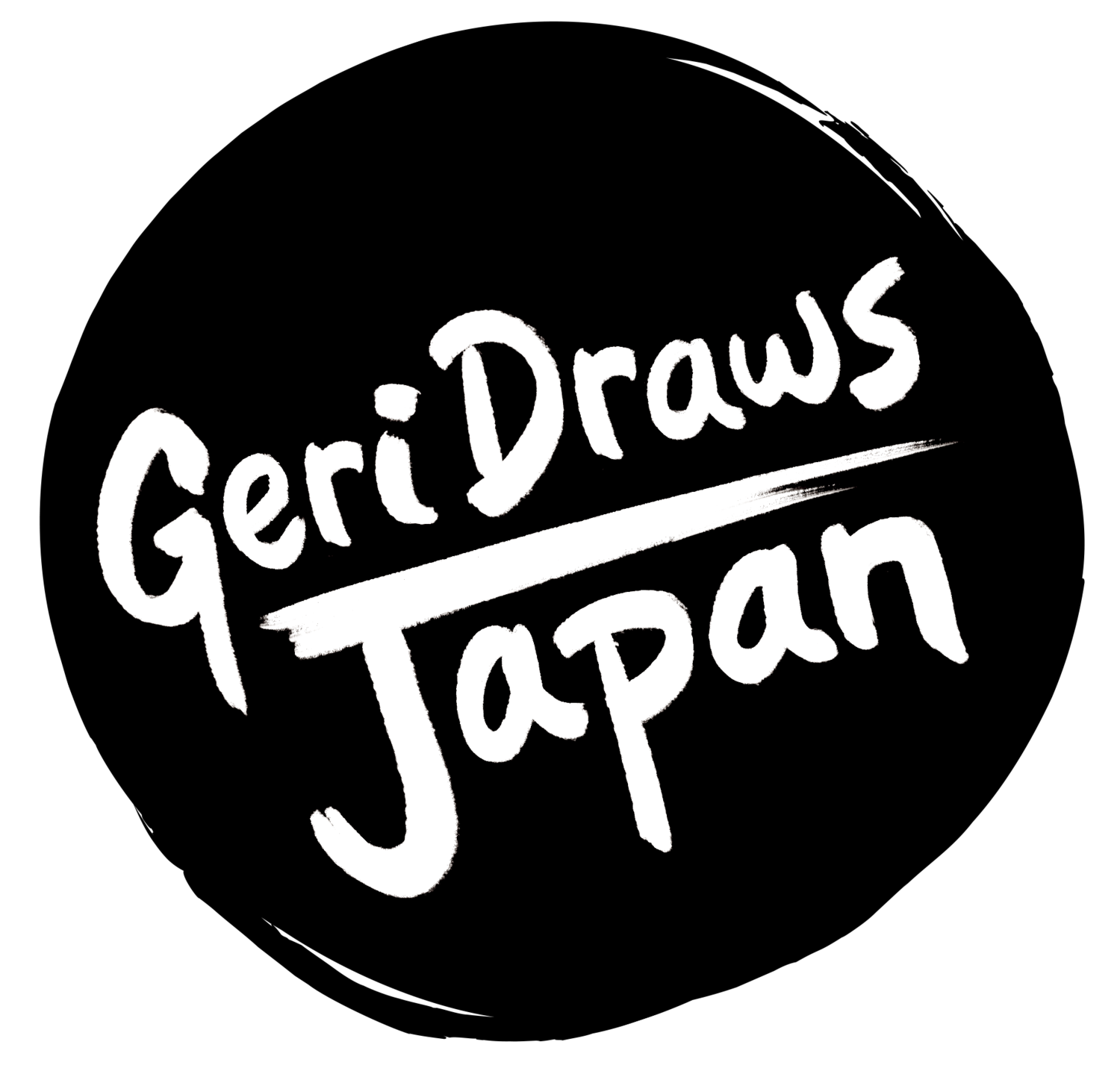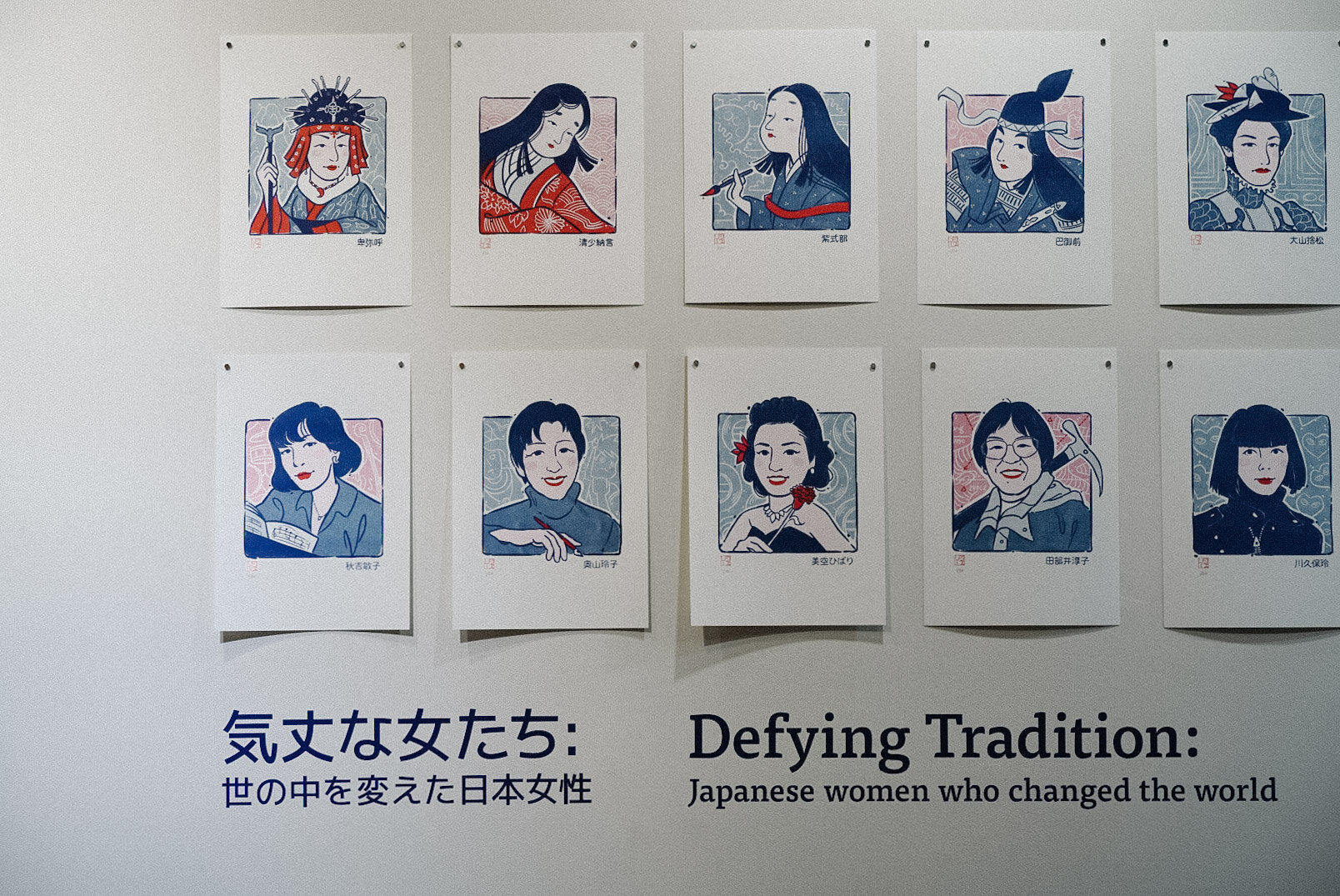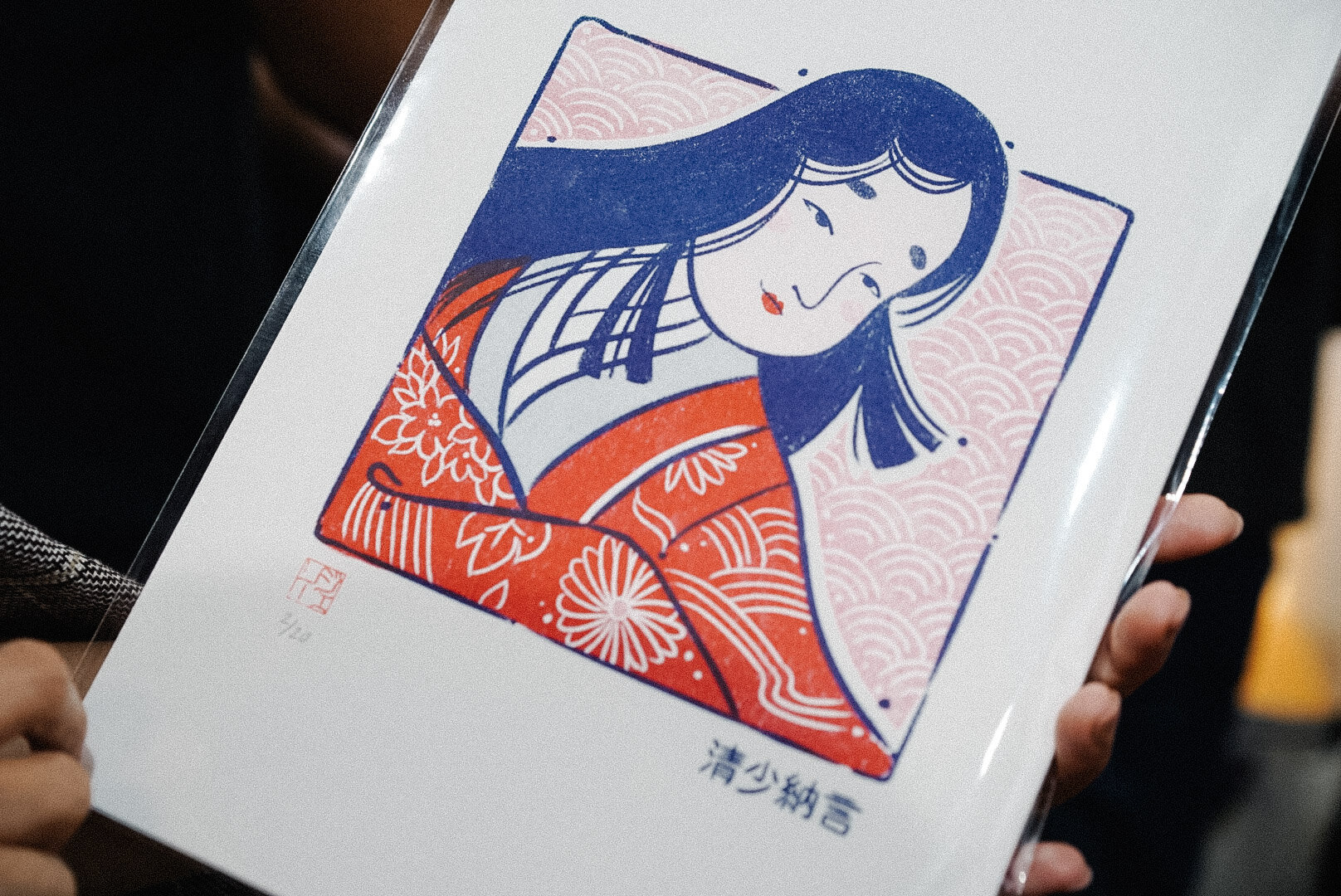Hitomi Kinue 人見絹枝 - A4 Riso Print (Signed and Numbered)
Hitomi Kinue 人見絹枝
First Japanese woman to win an Olympic medal
日本女性初のオリンピックメダリスト (1907年1月1日–1931年8月2日)
有名な女性誌のインタビューは「あなたの体重は男性たちとほとんど同じだから、本当に女性かどうか怪しいと言った人は多いでしょう?」と質問。
Hitomi Kinue was born in Okayama City to a farming family. During high school, she became interested in tennis and in 1924 entered gymnastics school, where she set an unofficial world record in the triple jump event. Over the four years that followed, she went on to set additional world records and gain medals in various sporting events, including shot put, hurdles, long jump, and the 50m race.
In 1928, Hitomi was selected to participate in the Summer Olympics in Amsterdam, making her one of the first women to be included on a Japanese Olympic Team. Although she did not win the event she had trained for, she made a last-minute decision to compete in the 800m race and placed second, earning her a silver medal and making her the first Japanese woman to win an Olympic medal.
Upon returning to Japan, she received a barrage of comments making fun of her taller-than-average height and athletic physique. A popular women’s magazine conducted an interview with her in 1929 and questioned her weight: “Since that is about the same weight as most men, haven’t people said that they are doubtful that you are really a woman?” They went on to state, “The appearance of your body is not really that of a woman,” and quizzed her, “When you become a wife and have a family in the future, will you continue to do sports?”
After competing in the third Women’s World Games and returning to Japan, she became exhausted by her busy schedule—five tournaments were to take place within half a month. In March 1931, she entered hospital under a false name to avoid publicity, and passed away from pneumonia on August 2 at the age of 24.
What is a riso print?
These prints use risograph technology, a method of printing developed in Japan in the mid-1980s. It can be described as a mix between screenprinting and photocopying. The risograph process produces prints with extremely vibrant, crisp inks, and sometimes these inks overlap during the printing process to create interesting and unique details. These soy-based inks also have a lower environmental impact.
Product details
Printed in Tokyo, Japan by Hand Saw Press print studio. Each print is A4 size (210 x 297 mm / 8.27 x 11.69 in) and printed on Natural White 186gsm Takeo Araveal paper. Acid-free and FSC Approved.
Each print is signed with a traditional Japanese ‘hanko’ artist stamp and hand-numbered from a limited edition of 20. Prints are packaged in cello bags with rigid cardboard inserts and shipped in flat mailers.
Please note that frames are not included.
Delivery times & prices
We ship worldwide. 日本へ国際郵便で送ります。
UK deliveries: 3-4 working days via Royal Mail 1st class
International deliveries available via Royal Mail International Standard Airmail
Prices calculated during checkout
For more information on shipping times for international deliveries, please check the delivery & returns page.
Hitomi Kinue 人見絹枝
First Japanese woman to win an Olympic medal
日本女性初のオリンピックメダリスト (1907年1月1日–1931年8月2日)
有名な女性誌のインタビューは「あなたの体重は男性たちとほとんど同じだから、本当に女性かどうか怪しいと言った人は多いでしょう?」と質問。
Hitomi Kinue was born in Okayama City to a farming family. During high school, she became interested in tennis and in 1924 entered gymnastics school, where she set an unofficial world record in the triple jump event. Over the four years that followed, she went on to set additional world records and gain medals in various sporting events, including shot put, hurdles, long jump, and the 50m race.
In 1928, Hitomi was selected to participate in the Summer Olympics in Amsterdam, making her one of the first women to be included on a Japanese Olympic Team. Although she did not win the event she had trained for, she made a last-minute decision to compete in the 800m race and placed second, earning her a silver medal and making her the first Japanese woman to win an Olympic medal.
Upon returning to Japan, she received a barrage of comments making fun of her taller-than-average height and athletic physique. A popular women’s magazine conducted an interview with her in 1929 and questioned her weight: “Since that is about the same weight as most men, haven’t people said that they are doubtful that you are really a woman?” They went on to state, “The appearance of your body is not really that of a woman,” and quizzed her, “When you become a wife and have a family in the future, will you continue to do sports?”
After competing in the third Women’s World Games and returning to Japan, she became exhausted by her busy schedule—five tournaments were to take place within half a month. In March 1931, she entered hospital under a false name to avoid publicity, and passed away from pneumonia on August 2 at the age of 24.
What is a riso print?
These prints use risograph technology, a method of printing developed in Japan in the mid-1980s. It can be described as a mix between screenprinting and photocopying. The risograph process produces prints with extremely vibrant, crisp inks, and sometimes these inks overlap during the printing process to create interesting and unique details. These soy-based inks also have a lower environmental impact.
Product details
Printed in Tokyo, Japan by Hand Saw Press print studio. Each print is A4 size (210 x 297 mm / 8.27 x 11.69 in) and printed on Natural White 186gsm Takeo Araveal paper. Acid-free and FSC Approved.
Each print is signed with a traditional Japanese ‘hanko’ artist stamp and hand-numbered from a limited edition of 20. Prints are packaged in cello bags with rigid cardboard inserts and shipped in flat mailers.
Please note that frames are not included.
Delivery times & prices
We ship worldwide. 日本へ国際郵便で送ります。
UK deliveries: 3-4 working days via Royal Mail 1st class
International deliveries available via Royal Mail International Standard Airmail
Prices calculated during checkout
For more information on shipping times for international deliveries, please check the delivery & returns page.
Hitomi Kinue 人見絹枝
First Japanese woman to win an Olympic medal
日本女性初のオリンピックメダリスト (1907年1月1日–1931年8月2日)
有名な女性誌のインタビューは「あなたの体重は男性たちとほとんど同じだから、本当に女性かどうか怪しいと言った人は多いでしょう?」と質問。
Hitomi Kinue was born in Okayama City to a farming family. During high school, she became interested in tennis and in 1924 entered gymnastics school, where she set an unofficial world record in the triple jump event. Over the four years that followed, she went on to set additional world records and gain medals in various sporting events, including shot put, hurdles, long jump, and the 50m race.
In 1928, Hitomi was selected to participate in the Summer Olympics in Amsterdam, making her one of the first women to be included on a Japanese Olympic Team. Although she did not win the event she had trained for, she made a last-minute decision to compete in the 800m race and placed second, earning her a silver medal and making her the first Japanese woman to win an Olympic medal.
Upon returning to Japan, she received a barrage of comments making fun of her taller-than-average height and athletic physique. A popular women’s magazine conducted an interview with her in 1929 and questioned her weight: “Since that is about the same weight as most men, haven’t people said that they are doubtful that you are really a woman?” They went on to state, “The appearance of your body is not really that of a woman,” and quizzed her, “When you become a wife and have a family in the future, will you continue to do sports?”
After competing in the third Women’s World Games and returning to Japan, she became exhausted by her busy schedule—five tournaments were to take place within half a month. In March 1931, she entered hospital under a false name to avoid publicity, and passed away from pneumonia on August 2 at the age of 24.
What is a riso print?
These prints use risograph technology, a method of printing developed in Japan in the mid-1980s. It can be described as a mix between screenprinting and photocopying. The risograph process produces prints with extremely vibrant, crisp inks, and sometimes these inks overlap during the printing process to create interesting and unique details. These soy-based inks also have a lower environmental impact.
Product details
Printed in Tokyo, Japan by Hand Saw Press print studio. Each print is A4 size (210 x 297 mm / 8.27 x 11.69 in) and printed on Natural White 186gsm Takeo Araveal paper. Acid-free and FSC Approved.
Each print is signed with a traditional Japanese ‘hanko’ artist stamp and hand-numbered from a limited edition of 20. Prints are packaged in cello bags with rigid cardboard inserts and shipped in flat mailers.
Please note that frames are not included.
Delivery times & prices
We ship worldwide. 日本へ国際郵便で送ります。
UK deliveries: 3-4 working days via Royal Mail 1st class
International deliveries available via Royal Mail International Standard Airmail
Prices calculated during checkout
For more information on shipping times for international deliveries, please check the delivery & returns page.










